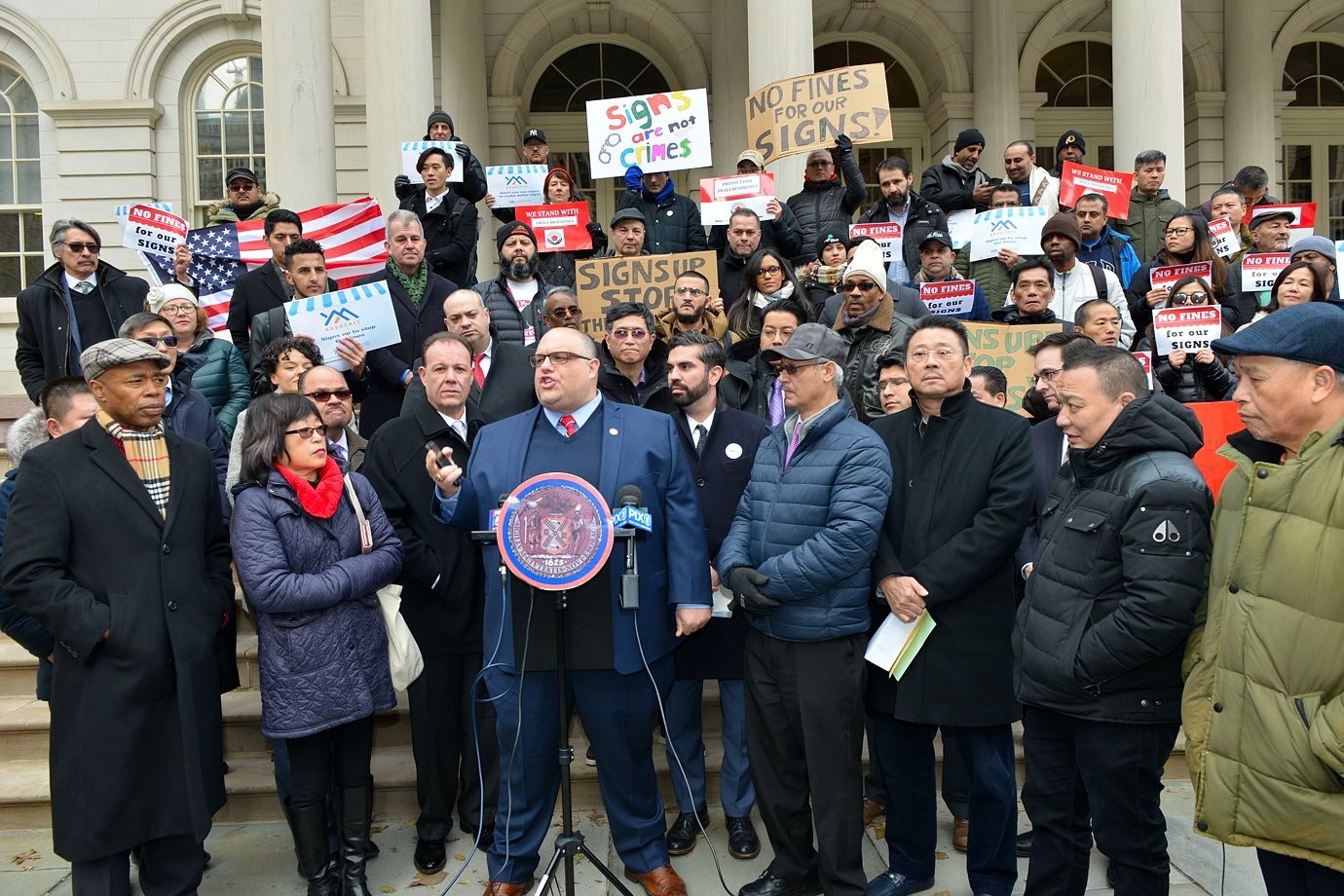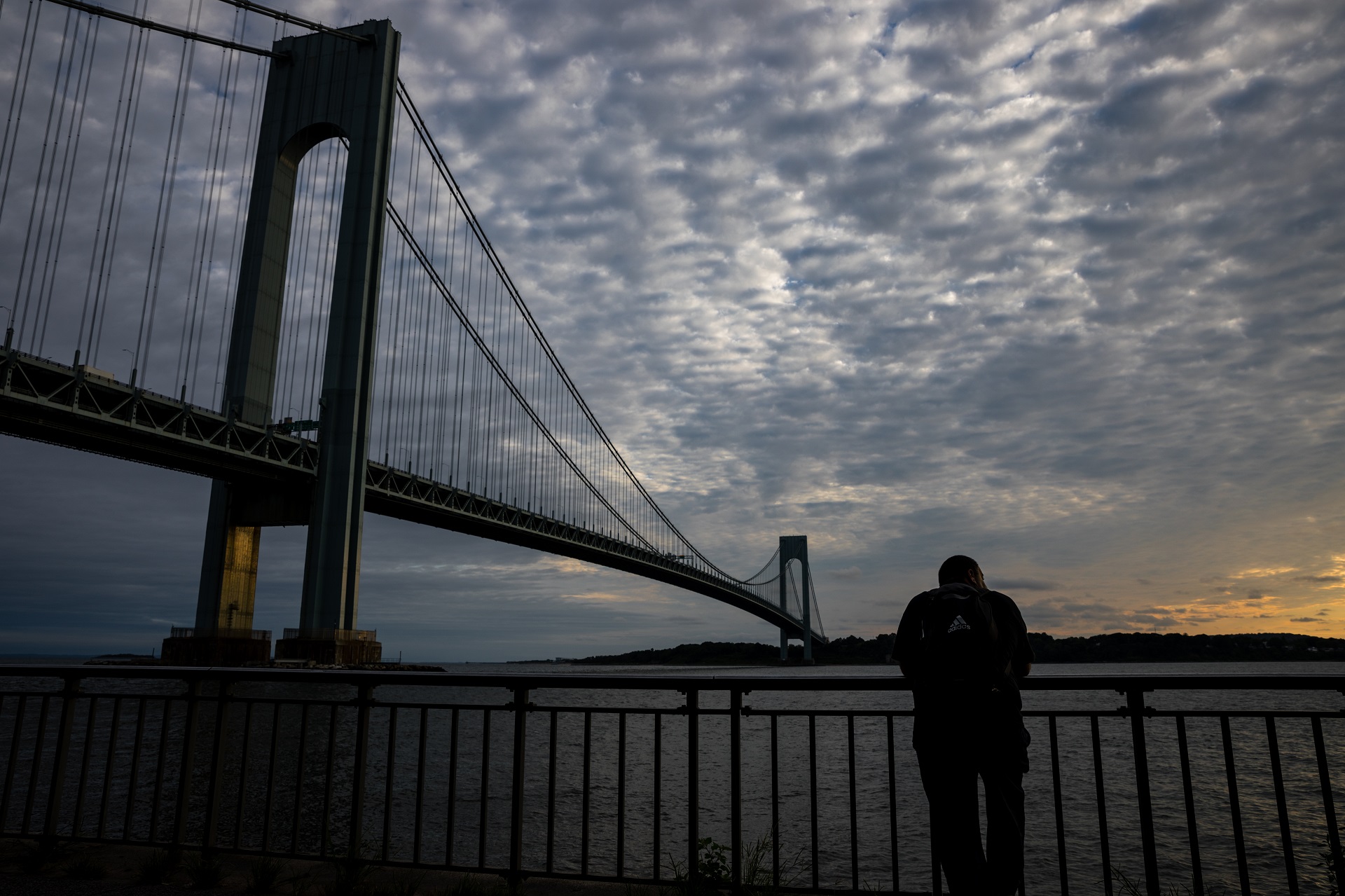Pols back small businesses slammed by sign busts

Politicians took to the steps of City Hall Wednesday to back small businesses hit by signage violations. Photo by JingHuai Li
No fines for our signs.
That was the message at an “emergency rally” held Wednesday on the steps of City Hall in defense of small businesses that have been blindsided by the Department of Buildings (DOB) for sign and awning violations that they claim haven’t been enforced at this volume in years.
According to city building codes, signs larger than six square feet require a special installation permit. However, local officials say small mom-and-pop shops are suddenly getting slammed by surprise fines.
